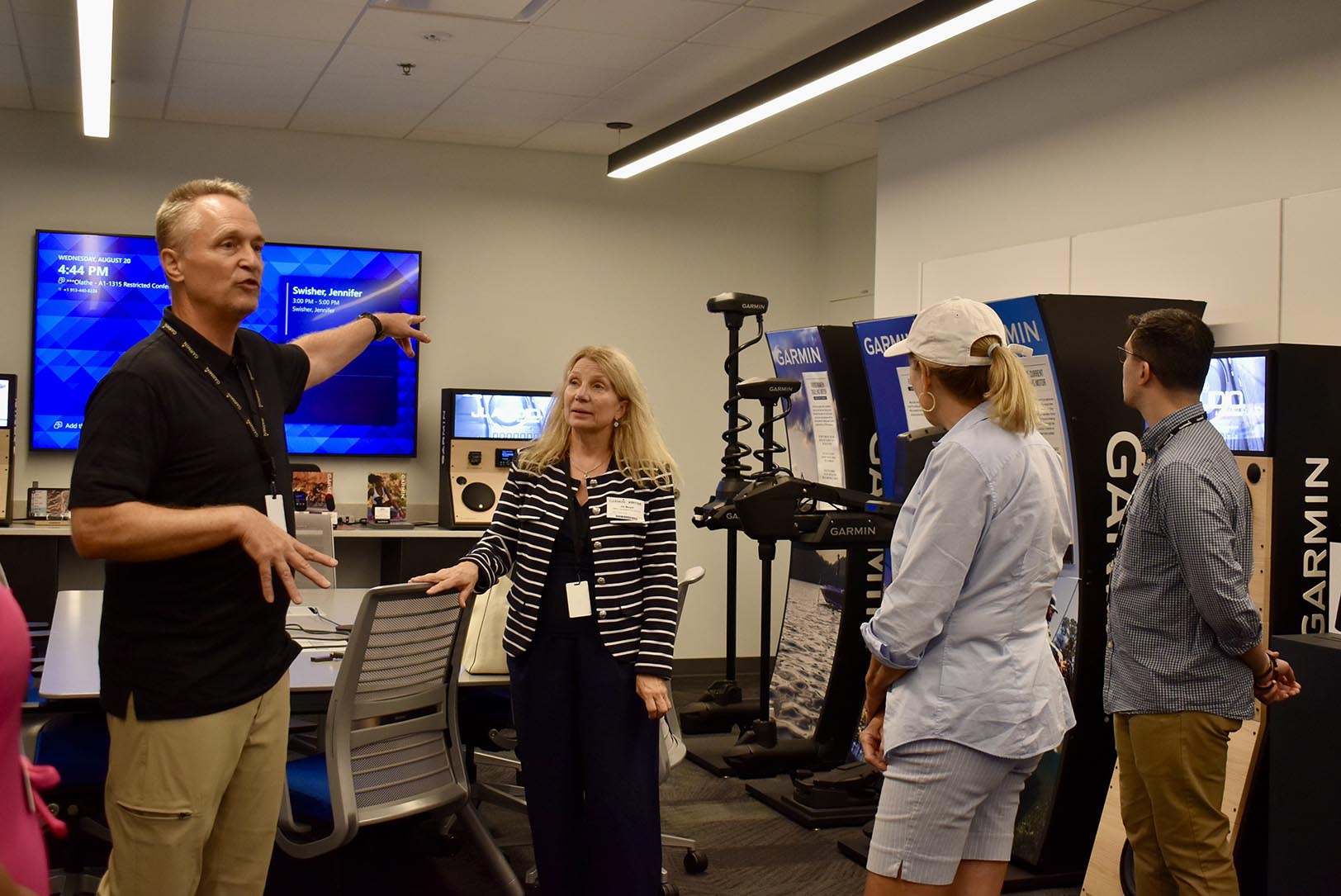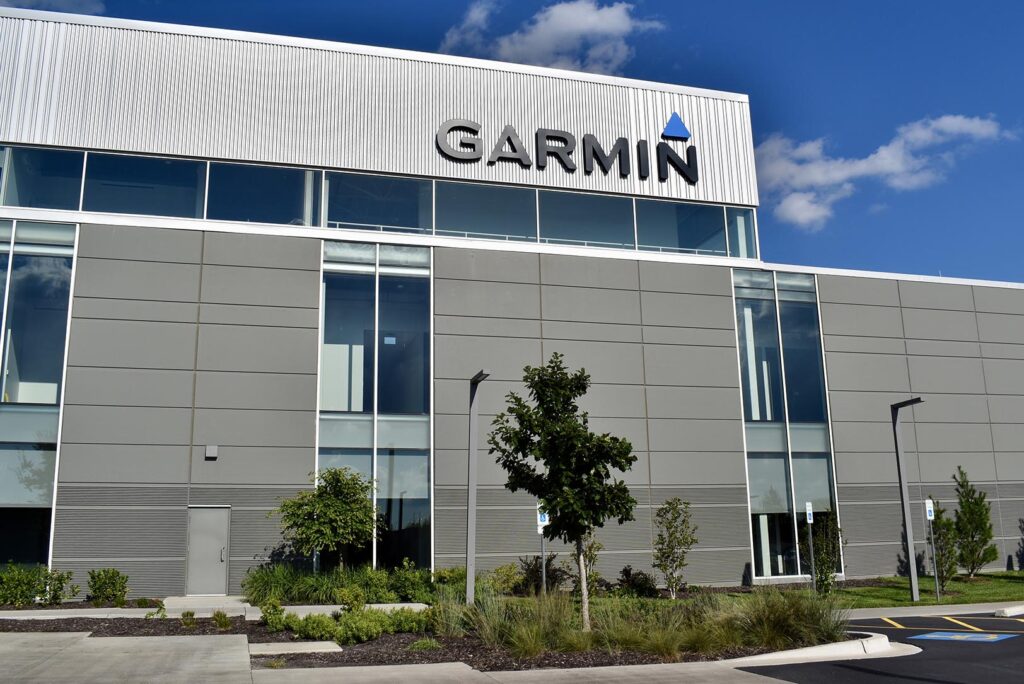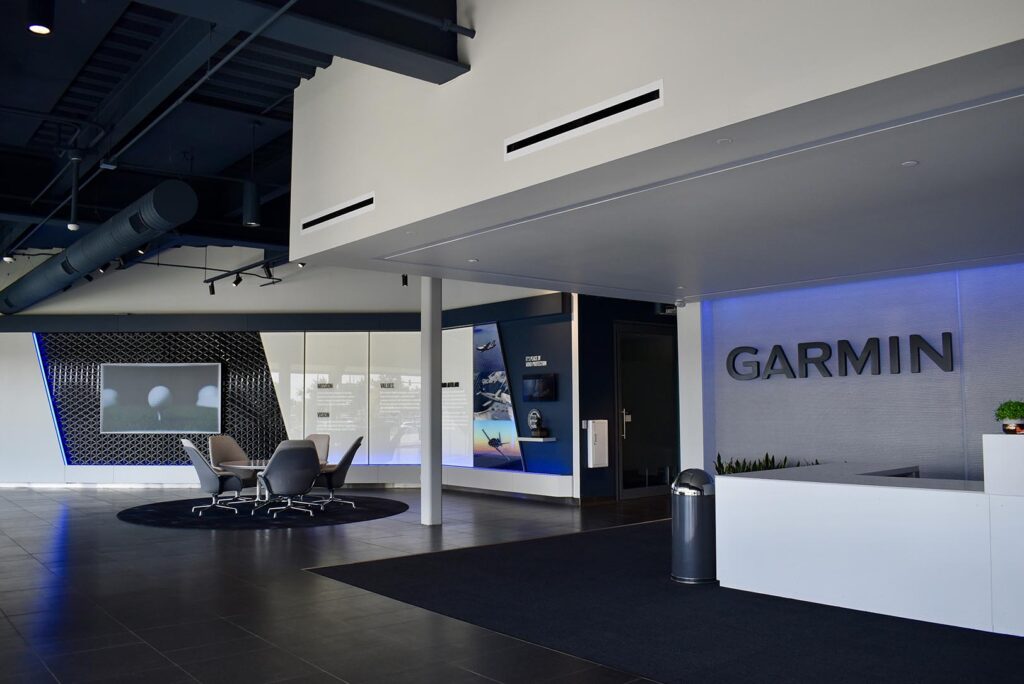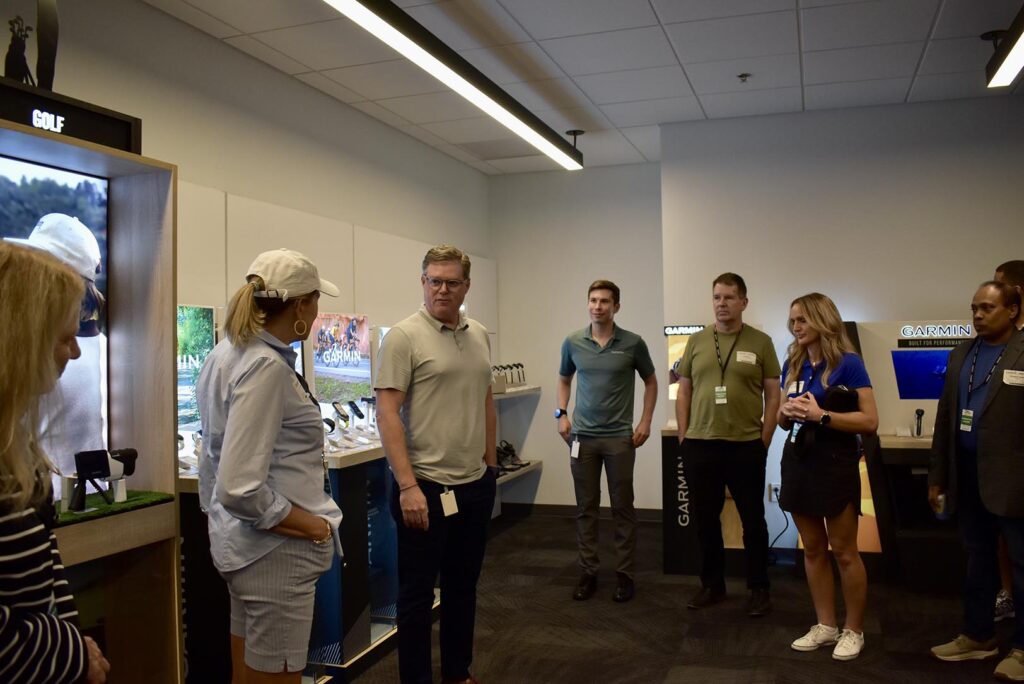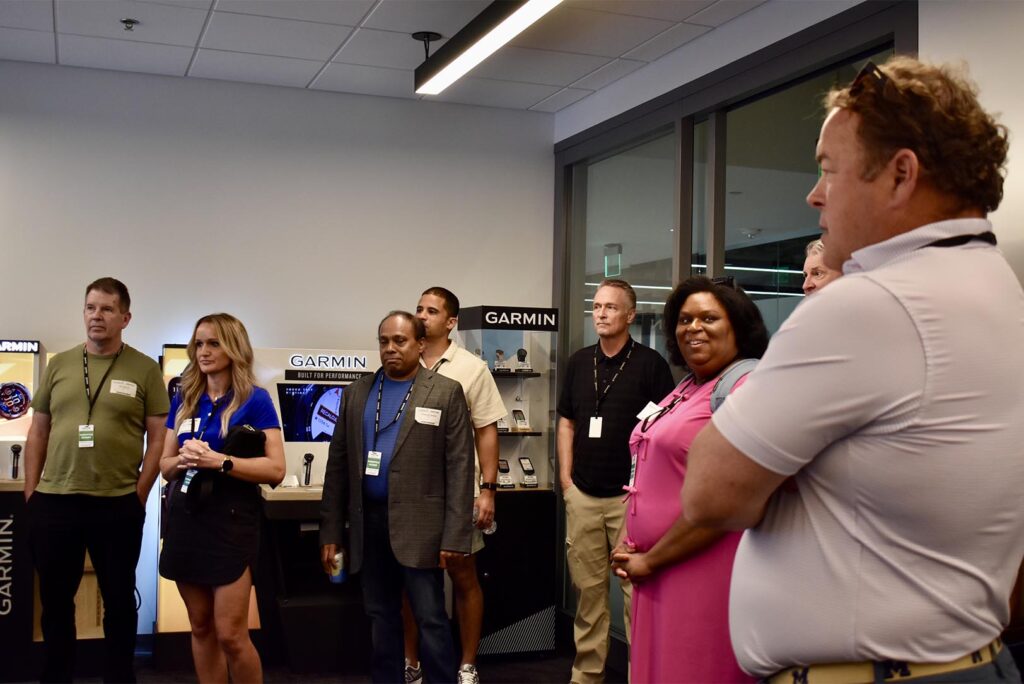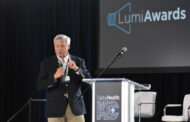Garmin might not have survived cellular carriers putting free navigation and mapping apps on every smartphone if the Olathe-based GPS tech leader wasn’t constantly innovating, said Scott Burgett, touring a group of digital health entrepreneurs and investors through the Johnson County headquarters.
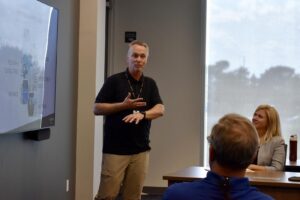
Scott Burgett, senior director of Garmin Health Engineering, speaks to founders, investors and other visitors to Garmin during a Digital Health Day event; photo by Nikki Overfelt Chifalu, Startland News
“It’s what keeps a company vibrant,” said Burgett, senior director of Garmin Health Engineering, offering behind-the-scenes insights to visitors Wednesday during a special Digital Health Day event organized by Digital Health KC. “Our new products typically account for 30 to 40 percent of our revenue.”
RELATED: Meet the Lumi Award winners: Digital Health KC salutes pioneers leading innovation trends
The tour included two of the reliability and testing labs at the Olathe innovation site, from which Garmin — a Kansas-built company that brings GPS navigation and wearable technology to the automotive, aviation, marine, outdoor, and fitness markets — has exceeded $6 billion in revenue. (Garmin now has 22,000 associates in 35 countries worldwide, including more than 5,000 at the Olathe campus.)
Such success in the age of smartphones required the company to innovate around technologies and uses that were adjacent to Garmin’s established GPS expertise, Burgett explained.
“We’re not going to suddenly create some brand new business,” he said, noting that developing wearable devices was a core example of Garmin turning an obstacle into opportunity.
From the archives: Garmin CEO reveals startup origins, tech hiring challenges, culture of innovation
The engineering team was initially working on a small handheld device, Burgett said, but they decided one day to see if the tech still functioned correctly if they strapped it to a person’s wrist and sent them on a run.
“It actually worked,” he recalled. “And that became our first GPS wearable. It’s now our biggest business. So we’re constantly looking for things that are adjacent.”
Those same wearable devices — which gain access to a wide array of health metrics and real-time sensor streams — also prove ideally suited for digital health applications, Burgett continued.
“Wearables are our focus, but we realize that they can’t be utilized unless they have the right connectivity solutions, getting data off the device into someone’s app, someone’s ecosystem,” he explained.
That’s where Garmin Health comes in, he noted, calling the brand a startup within Garmin.
“We are an ecosystem player,” he told the group of Digital Health Day visitors. “So we don’t want to go out and create prescriptive solutions for some problem like chronic condition management. We want to sell you a watch, give you a connectivity solution, so you can go create your solution because you’re better at it than we are.”
“We’re engineers,” he added. “We’re more worried about ‘What’s the current draw of this sensor?’ You can worry about things at the higher level like, ‘How do I address COPD or care outside the home?’”

Andy Beckman, director of sales for Garmin Health, gives visitors and innovation overview during a Digital Health Day event; photo by Nikki Overfelt Chifalu, Startland News
Orbit Health serves as an example of a digital health startup using Garmin wearable technology for Parkinson’s Disease management, Burgett noted. The company translates the acceleration and gyro data from the wearable to detect when a patient’s tremors start again, even before the user might realize it, so that their medication can be adjusted if needed.
“It’s very cool,” he added.
Although Garmin Health is competing with the likes of Apple, Samsung, Whoop, and Oura, Andy Beckman, director of sales for Garmin Health, said he feels like the company is more open to partnerships and working with startups.
“We welcome the opportunity to have a conversation and see if we can make some magic together,” he told the tour group.





